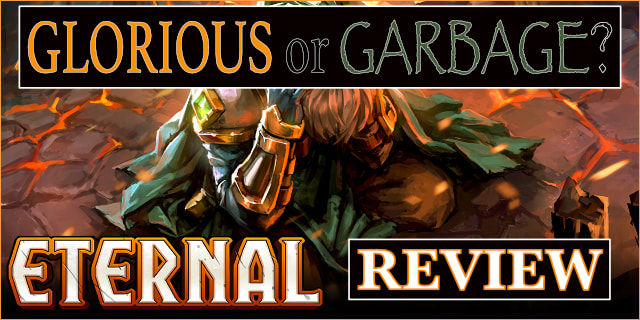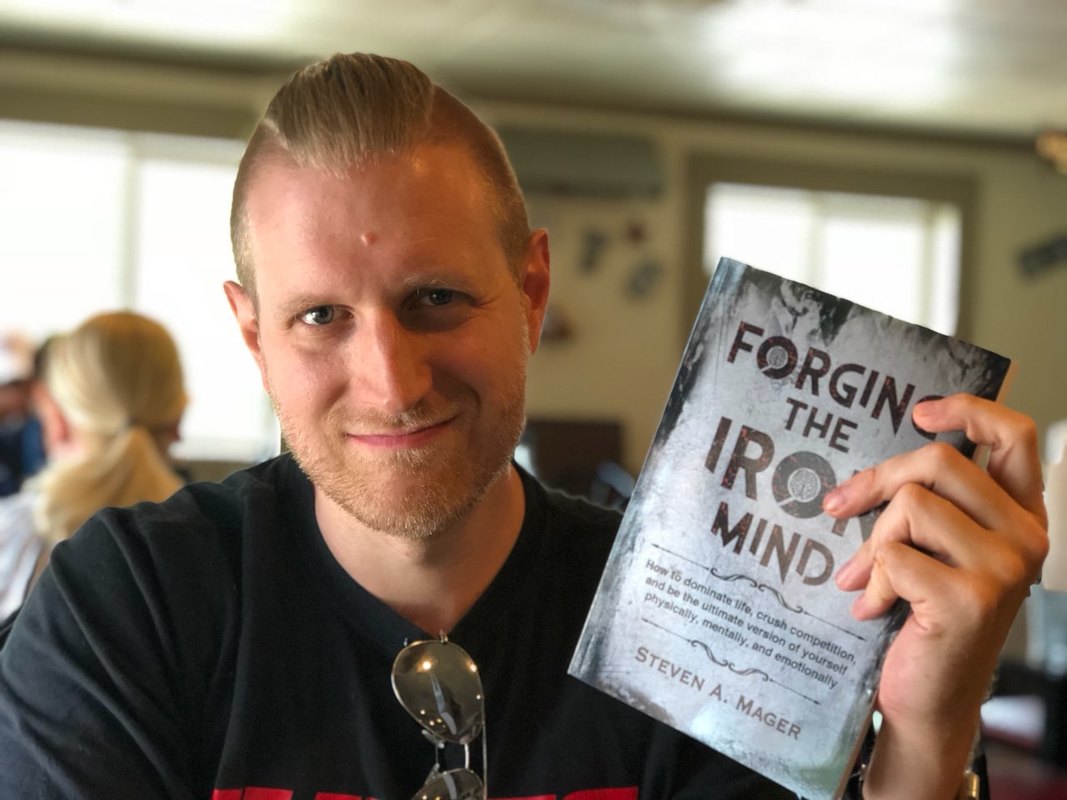|
Hello, and welcome to the first in my review series entitled:
Glorious or Garbage? We have a lot of choices these days in the entertainment we consume, be it movies, games, or books. We are living in the Golden Age of entertainment, in the sense that collectively, there is a nearly limitless amount of high-quality material for us to consume. Thus, in my opinion, there is no reason for us to be consuming anything mediocre; therefore we can do away with rating systems entirely. To me, there is no gray area, something is either utterly incredible i.e. GLORIOUS, and worth my time, or it is GARBAGE, and should be relegated to the dustbin of history. In addition, I do not even believe in falling into a life of consumption only, driving from game to game, or movie to movie. It is important to stay creative, active, and mindful of where our energy is going. Therefore, we should all be incredibly discriminating on the things we allow into our lives. So, without further ado, let’s see if Eternal is Glorious or Garbage. A little background, I played both Magic and Hearthstone for many years, achieving a Top 8 at a Pro Tour Qualifier and Legend rank in Hearthstone. I am not a professional, but I have some experience with these games, and wrote about them in my book. Eternal is a Collectible Card Game (CCG) in the vein of Magic the Gathering, Hearthstone, and Artifact. It is developed by Dire Wolf, who also originally designed The Elder Scrolls: Legends CCG, before passing the mantle for that game back to Bethesda. The first thing one notices upon getting started with Eternal, is that it has a unique setting: the world of Myria, home to all sorts of craziness such as gunslinger mages with magical bullets straight out of a western movie, Yetis that pack snowballs with rocks, flying bears and snakes, and all manner of lunacy. The second thing you notice is the striking similarities to Magic the Gathering, as the cards have many similar skills, just renamed to something different, such as Trample in Magic being Overwhelm in Eternal. Also, it shares a few things with Hearthstone as well, such as the ability of your hero to attack, and several mechanics that leverage the digital nature of the game, that really wouldn’t be possible with paper cards. The more I played, the more striking the difference between the CCGs became. Magic and Hearthstone have ruled the paper and digital space for CCGs for some time now, and are vastly different. Hearthstone brings a far simpler design (which in many ways is an advantage) and a far more comedic tone, with goofy dialogue and situations happening nearly every turn. Magic, on the other hand, just turned 25 years old and has settled into a more serious tone. The art, gameplay design, and worlds are far less crazy than they used to be, and the comedy aspect is mostly removed. I remember when Magic used to have cards like Might of Oaks, with art depicting an enormous squirrel towering over the trees, and at one point there was actually a squirrel deck you could make. Lead designer for Magic, Mark Rosewater, has said many times that they are likely not bringing back some of the sillier aspects of Magic, and in addition, have adopted a more technical art style, with some of the more comedic and abstract offerings of days past being largely gone. Eternal slides right in between the two CCG juggernauts in several highly effective ways. One, it is far more complex than Hearthstone, and in a lot of ways, more complex than Magic, yet in some ways, is easier to understand. For example, in Magic tournaments you have a what is known as a sideboard, a collection of cards you may add to your deck after the first game in a best out of three format, to help against that particular matchup. Eternal has something similar, called Markets, except for one thing: they can be accessed in the middle of a game via Merchants, which allows for incredible gameplay and decision making by the player. I’d also point out that Eternal sports five colors, just like Magic, but the combinations are far more varied than they are in that game. Having 3-4 deck archetypes in one faction is plausible. For example, Rakano, which would be equivalent to the Boros faction in Magic, has at 3-4 serious competitive variations at any given time, which allows for an incredibly diverse metagame. The second thing you notice is how far outside the box the design gets. There are an incredible amount of cards that are just absolutely crazy that scream for you to make a deck around them for fun. Even though there have only been five sets as of this writing, there are more cards that are completely out of left field than the last 10+ years of Magic and Hearthstone combined. You will find yourself finding completely absurd combinations constantly, and card after card that you want to build an entire strategy around. Whether it is summoning the Four Horsemen, a gun that one shots an opponent, a board full of sand wurms, or crawling through the Argenport sewers at night with rats, the flavor and gameplay are nearly endless. For me, I loved the Yeti, a feral band of semi-humanoids that live in the mountains. With names such as Wump, Thudrock, Chunk Chunk, Crunch, and of course, Pok Pok, it’s endlessly hilarious to hear them talk in yeti gibberish, pack snowballs with rocks, and swarm over other players. There is also Praxis guitarist Diogo Malaga, who hits a heavy metal riff when he lands on the board. It’s funnier than Magic, but it also isn’t a complete comedy like Hearthstone. Third, they have done a great job at balancing, tweaking, and preventing many flaws in CCG games past. One of the problems inherent to card games is the randomness creating bad draws, especially in Magic’s mana system. Eternal has a similar system but has found many unique ways such as the mechanics Pledge and Transmute, to alleviate mana screw and flood, two of the most frustrating aspects of Magic. Also, being the digital format, they can alter problematic cards instantly, in a way that Magic simply cannot. Also, sometimes in card games, it feels as if you aren’t in control, that the game develops the way that it does and there is little you could have done to alter the outcome. In Eternal, there are numerous lines of decisions that can meaningfully alter the course of a game, such as the Markets mentioned above, but also others, such as the new Sites that present multiple meaningful choices in a row. I would also note that the Free To Play element of Eternal is done quite well, as you get a generous amount of gold and packs for playing. Magic and Hearthstone are both iconic, marvelous games. I still play Magic from time to time, but make no mistake, Eternal is up there with the best of them, and is undoubtedly Glorious, but more than that it is worth your time, which in this day and age is a high compliment. Steve Mager If you enjoyed this article, please share it and follow me on social media: Facebook: www.facebook.com/StevenAMager Twitter: https://twitter.com/StevenAMager Instagram: https://www.instagram.com/steve_mager/ Get my book, Forging the Iron Mind: [https://amzn.to/2uxRvCs]
0 Comments
|
AuthorSteve's blog where he talks about anything and everything: writing, fitness, mindset, movies, TV, and his favorite stuff. Archives
November 2019
Categories
All
|
Copyright © 2015




 RSS Feed
RSS Feed